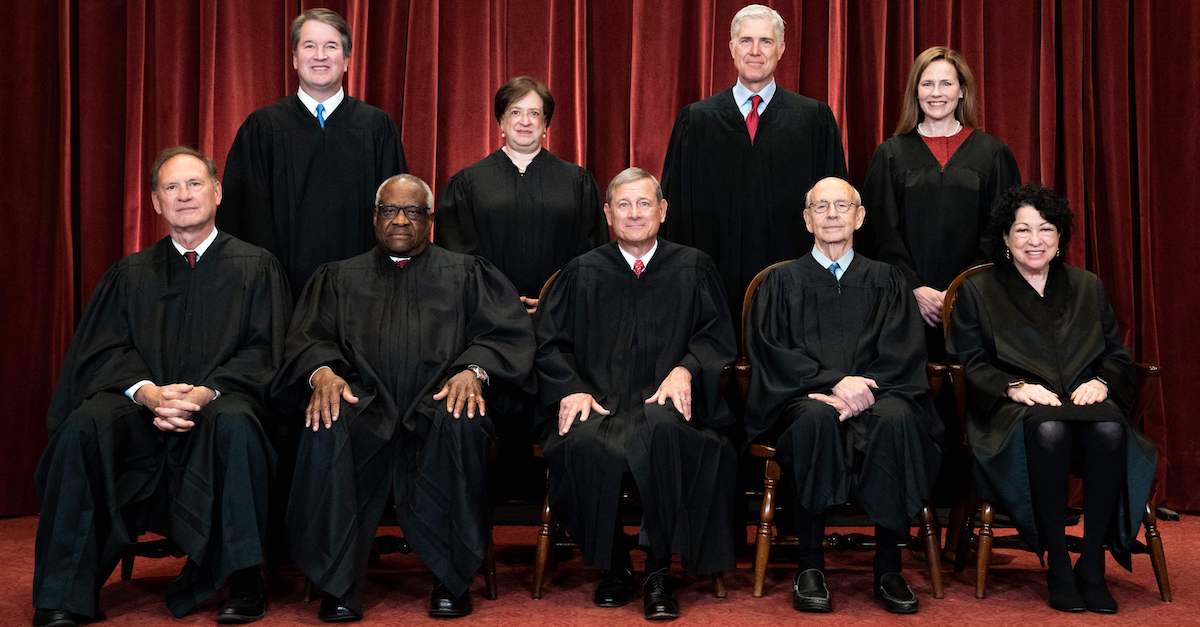
The post-9/11 FBI, then led by Robert Mueller, allegedly illegally spied on a Muslim community in Southern California for years by way of an informant who was ordered to have sex with Muslim women and even record some of those encounters. The Supreme Court of the United States on Monday heard oral arguments that could determine whether or not the nation’s largest law enforcement agency can be held accountable in court.
In the case stylized as FBI v. Fazaga, the government is seeking to overturn a recent Ninth Circuit Court of Appeals ruling that held the Foreign Intelligence Surveillance Act (FISA) contains measures that allow the plaintiffs–an imam and two Muslim worshipers–to overcome a state secrets argument and sue the bureau for religious discrimination.
Procedurally, the Muslim plaintiffs, led by Yassir Fazaga, lost at the district court level. The appellate court ordered the lower court to reconsider under a FISA provision that specifies how courts are supposed to deal with information involving surveillance putatively collected for national security reasons.
“I don’t know where in any of our jurisprudence we’ve suggested an in camera review threatens state security,” Chief Justice John Roberts told Deputy United States Solicitor General Edwin Kneedler–using the legal term for a court review of material behind closed doors.
Roberts’ skepticism of the government’s position in the case largely set the tone for most of oral arguments–with the majority of the justices appearing at least open to the interpretation of the statute advanced by Fazaga’s attorney Ahilan Arulanantham.
At heart, the issue is whether or not the government citing the state secrets privilege qualifies as an effort to “otherwise use” the “information obtained or derived” from the surveillance at issue.
According to the government, the invocation of the state secrets privilege is simply that: the FBI is claiming the privilege and not really trying to use the evidence in the case in a legal sense.
Oppositely, Arulanantham noted the typical way the privilege is used is to exclude or excise such evidence entirely. Here, however, the government is actually using the privilege in direct reference to the surveillance dragnet and seeking to dismiss a series of causes of action by virtue of that evidence they don’t want anyone to ever see.
Additionally, Arulanantham noted that the plaintiffs don’t even need or want access to the FBI’s evidence because their entire case rests on their own evidence–which they argue shows religious discrimination against Muslims–culled from the whistleblower informant himself.
“[FISA Section] 1810 lets a person who has been surveilled unlawfully sue for damages,” Justice Sonia Sotomayor said in response to Kneedler’s arguments before characterizing the government’s position as something of a closed feedback loop. “So, I must assume on the face of the complaint that the plaintiffs have standing because they have been unlawfully surveilled. The government says the judge can’t determine if such plaintiffs have been surveilled unlawfully.”
The left-leaning justice’s skepticism appeared to be shared by the majority of her colleagues–particularly the other members of the court’s left flank, as well as Justice Neil Gorsuch.
Quizzing Kneedler on the definition of what “otherwise use” in the statute means, Gorsuch rejected the government’s argument that the phrase was a comprehensive catch-all.
“There’s got to be another way to use this evidence that doesn’t involve its disclosure,” Gorsuch added–appearing to endorse the position advanced by civil libertarians.
Kneedler argued that the government was trying to suppress the use of the evidence and maintained that the Ninth Circuit’s reading of FISA cannot supplant the longstanding state secrets privilege.
The justices, for their part, appeared to agree with the government on that point–suggesting that the Ninth Circuit may have reached the correct conclusion by going about it the wrong way.
“Why isn’t it both?” Justice Elena Kagan asked the government attorney, suggesting that the relevant section of the statute contains both suppression guidelines and litigation guidelines.
“You’re just excising words from this statute,” Kagan continued. “It seems that Congress wanted to do two things here.”
Sotomayor returned to the section of the statute that allows lawsuits to be filed for unlawful surveillance, repeatedly pressing Kneedler to answer her question about what recourse plaintiffs might have if the government prevails.
“Answer my question directly about 1810’s right of action,” she said. “You say that if a party has standing and very few do because very few people know they’ve been surveilled the way these people do. You’re saying they can’t proceed if you claim state secrets or even have a judge look to determine if it’s lawful or unlawful. How are you injured if the judge says it’s unlawful. My bottom line is you’re saying a person who has been unlawfully surveilled doesn’t the right to sue under 1810.”
To which Kneedler replied: “Maybe if they’ve proved it some other way.”
“They have proved it some other way,” Sotomayor noted, appearing to lean heavily in favor of the Muslim Americans who were surveilled by the FBI.
Arulanantham categorized the government’s position as a tortured way of reading the language in the statute.
“Relying on information to win dismissal of a lawsuit is using that information,” he argued. “They are using it to effectuate the dismissal of the religion claims. That’s a use. When they move to dismiss, that’s a use.”
[image via ERIN SCHAFF/POOL/AFP via Getty Images]